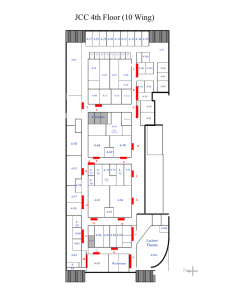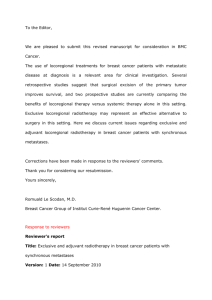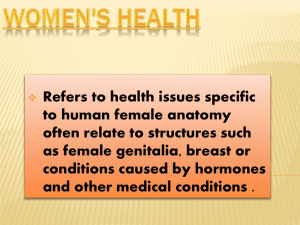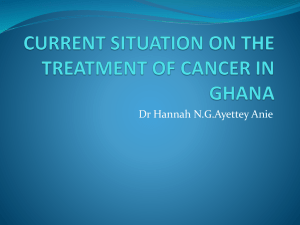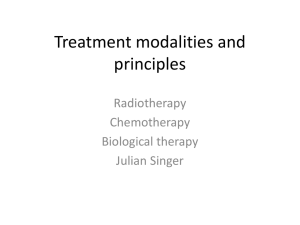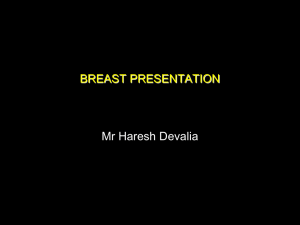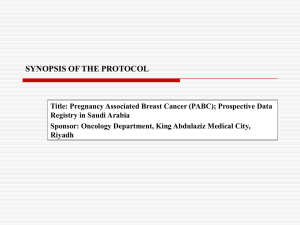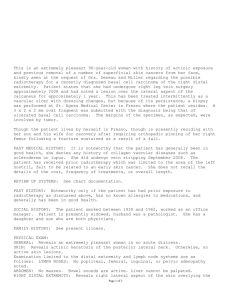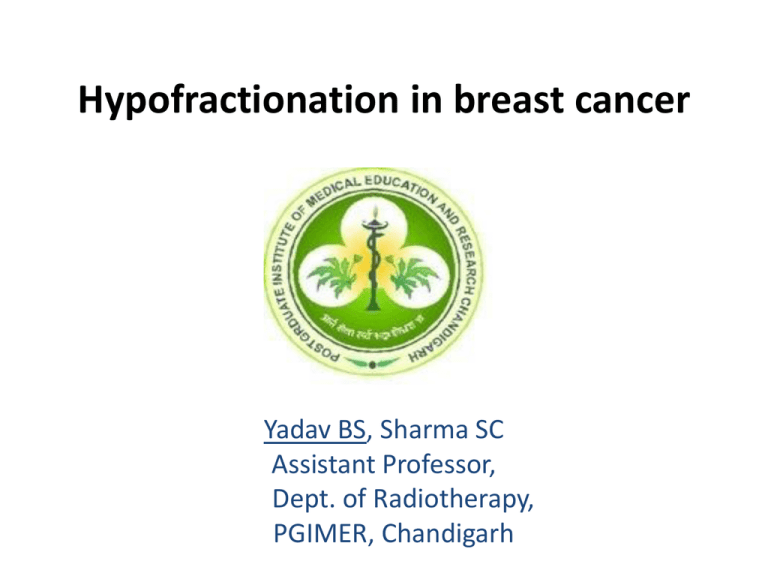
Hypofractionation in breast cancer
Yadav BS, Sharma SC
Assistant Professor,
Dept. of Radiotherapy,
PGIMER, Chandigarh
Introduction
• Breast cancer is as sensitive to fraction size as
the normal tissues of the breast and
underlying rib cage
• Hypofractionated radiotherapy is an
established treatment in patients with breast
cancer.
Aim
To see impact of hypofractionated radiotherapy in
breast cancer patients.
•Cosmetic outcome
•Locoregional recurrence
•Disease free survival
•Overall survival
Materials and methods
Duration:
Analysis:
Patient No:
Mean age:
Variables:
Jan 1987 to Dec 2007
Retrospective
2756
49 years
Age, menopausal status, tumour
stage, histology, grade, DRP,
ECE, LVI, ER/PR & HER-2 status
Treatment:
Median FU:
Radiotherapy, chemotherapy & hormones
64 months
Age
Menopausal status
<40yr
18%
54
52
50
54%
48
≥40yr
82%
46
44
46%
42
Pre
Post
Surgery
• TM+AC:
2139(83.5)
• BCS:
420(16.5)
• Median No. of nodes:
10:11
Pathological
Characteristics
N(%)
Tumor stage
T1T2
T3T4
1361(53)
1218(47)
Histology
IDC
ILC
Others
2328(90.5)
90(3.5)
151(6)
Grade
I&II
III
Unknown
2022(79)
446(17)
101(4)
DRP
Involved
Free
291(11)
2278(89)
Nodal status
50
45
44%
39%
40
35
30
25
20
15
7%
10
5
0
N0
N1 & 2
N3
Characteristics
N(%)
LVI
Yes
No
522(20)
2247(80)
ECE
Present
Absent
175(7)
2394(93)
ER
Positive
Negative
Unknown
1220(47)
414(16)
935(37)
PR
Positive
Negative
Unknown
1044(40)
870(33)
955(27)
HER-2
Positive
Negative
Unknown
256(10)
993(38)
1330(52)
Radiotherapy
PMRT
CW
SCF
35Gy/15#/3wks
40Gy/15#/3wks
Intact Breast
40Gy/16#/3wks
Machine:
Cobalt/Linac
Fields:
Tangential
SCF
Systemic Treatment
Chemotherapy
N(%)
Yes
1077(42)
No
1492(58)
Hormones
Yes
1837(70)
No
722(30)
Results
LRR
35
30
25
20
15
10
5
0
33
7.7
RT
No RT
LRR
RT
No RT
46
30
7
BCS
8
Mast
Distant metastases
22
RT
No RT
38
Cosmesis
45%
40%
42%
38%
35%
30%
25%
20%
17%
15%
10%
5%
3%
0%
Excellent
Good
Fair
Bad
LRRFS
93%
RT
70%
p<0.001
No RT
Overall survival
86%
RT
76%
No RT
p<0.001
Dose & fractionation
16
14
12
UK
LRR
10
8
Chd
6
4
2
0
50Gy
40Gy
35Gy
Conclusion
• Hypofractionation reduces treatment time to
half while maintaining cosmesis and control
rates equal to conventional fractionation.
• It will help the radiation centers worldwide to
meet the growing need for radiation in breast
cancer, particularly in developing countries
where resources are limited.

